What Is A Febrile Seizure?
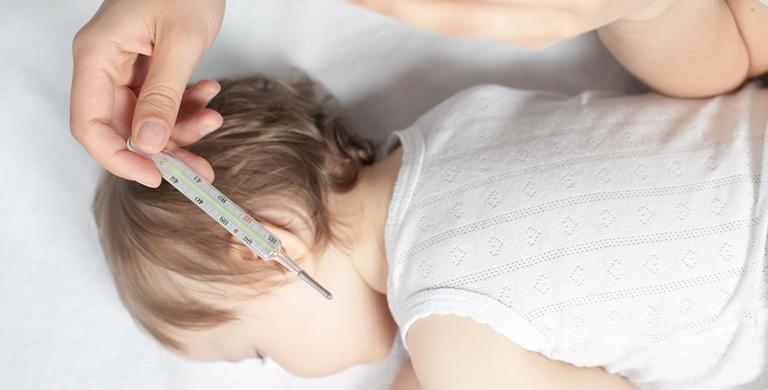
As parents, naturally we constantly dote on our newborn and become consumed by their every move. We observe every little change in behaviour, emotion and physical state, so when something out of the ordinary occurs we tend to become panicked and overwhelmed with worry.
When an infant suffers a febrile seizure it’s incredibly confronting to observe and the inability to put a stop to the convulsions is always difficult for parents to deal with. Although stressful to see, thankfully febrile convulsions do not cause any harm to your child or their brain functioning.
What Is A Febrile Seizure?
A febrile seizure is often caused by a rise in body temperature, normally as a result of fever or infection. The normal body temperature is 37oC, a sudden increase by just 1.5oC can cause febrile convulsions in infants.
Generally infants and children up to the age of six are the ones that experience febrile seizures. Although rare, adults can also suffer convulsions due to fever.
Whether the experience lasts for one minute or one hour, febrile seizures are not harmful to your child. The convulsions have no long term impact on the brain and once passed your child will be ok.
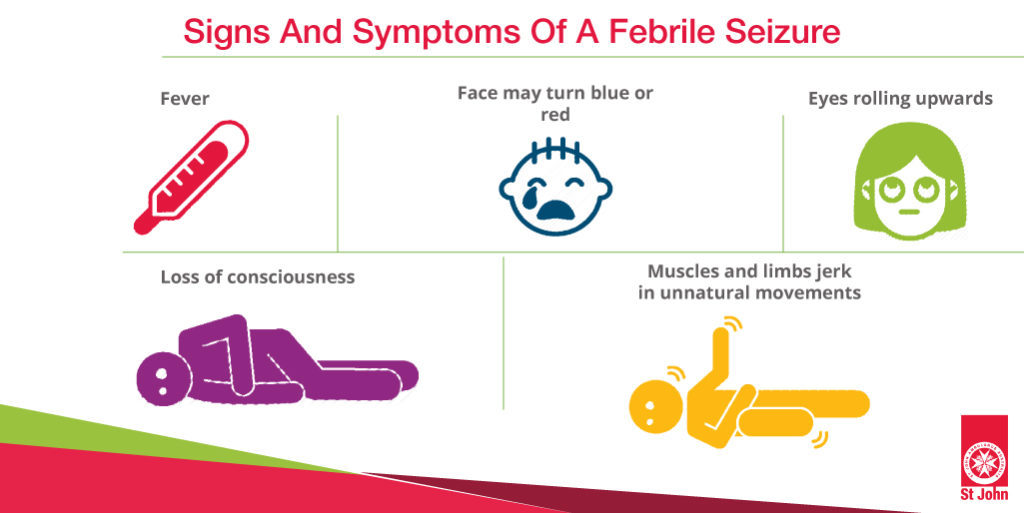
How Common Is A Febrile Seizure?
A febrile seizure is usually seen in children under the age of six but can also occur in adults.
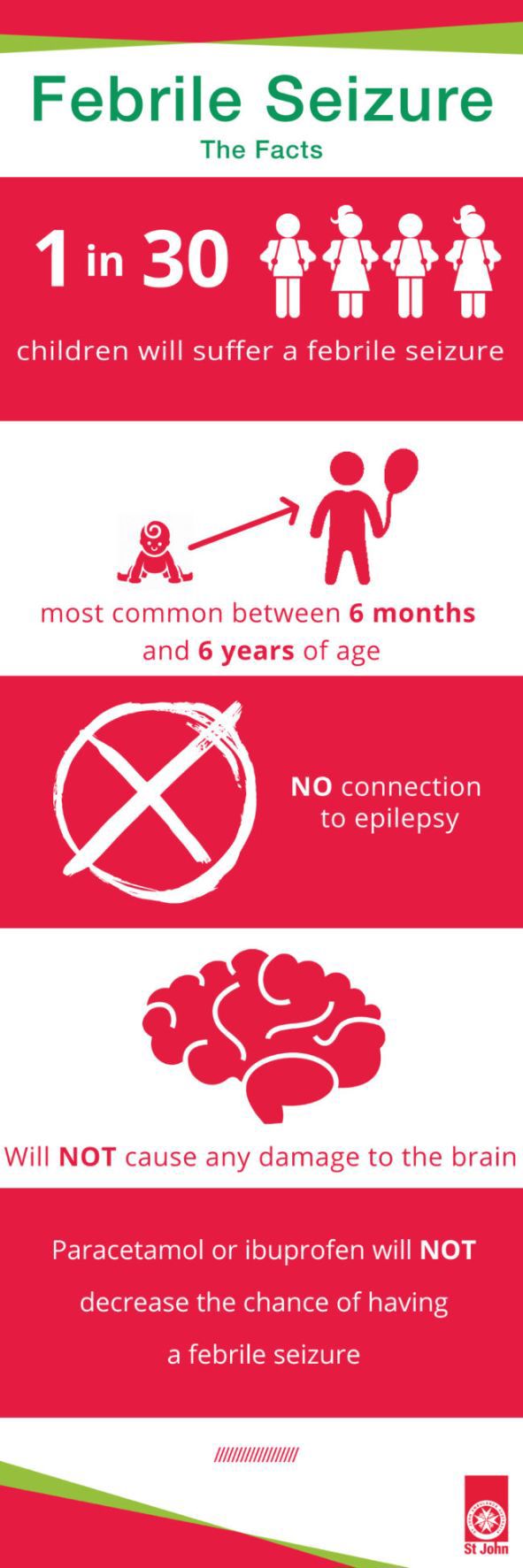
Febrile Seizure First Aid
A febrile seizure can be upsetting to watch and may seem like a serious health emergency but remember that the convulsions will pass and your child will be ok.
Throughout the febrile seizure:
- Remove any dangerous objects surrounding the child
- Position the child on their side in case they vomit
- Do NOT restrain the child, let them move freely
- Position a pillow or soft materials underneath the child’s head if possible
After the febrile seizure:
- Follow DRSABCD
- If the child is suffering from a high temperature do NOT cool them with a sponge bath or shower
- Remove excess layers of clothing
- Seek medical assistance to discover cause of the febrile convulsions
Important note: If it is the first time your child has suffered a febrile seizure, the event lasts more than five minutes or they look incredibly unwell when the febrile seizure finishes call an ambulance
Important Things You Should Do Throughout A Febrile Seizure
There is nothing you can do to stop a febrile seizure but you should always do the following whilst an episode is occurring:
- Remain calm, reassure anyone else around you
- Do NOT restrain the infant, let them move freely
- Move the infant to a soft surface or place soft materials underneath their head
- Position the infant on their side in case they vomit, to avoid choking
- Do NOT put anything, including your fingers in their mouth
- If possible, record the event so you can show to medical professionals afterwards. Alternatively, take notes of anything that stands out
- Make a note of the time the febrile seizure began and finished
What Happens After A Febrile Seizure?
A febrile seizure usually only lasts a few minutes but it can continue for up to one hour. Once the febrile seizure has stopped the infant will regain consciousness but they may exhibit signs of sleepiness, lethargy, loss of appetite and/or be irritable.
Like any form of seizure, a febrile seizure can be very distressing to watch. The most important things to remember are that the convulsions will generally finish within a few minutes, your child is not at risk of brain damage and that they are not in any pain.
Depending on the length of the febrile convulsion and condition of the child afterwards either schedule an appointment with the family GP or call upon emergency medical services for immediate observation and possible further treatment.
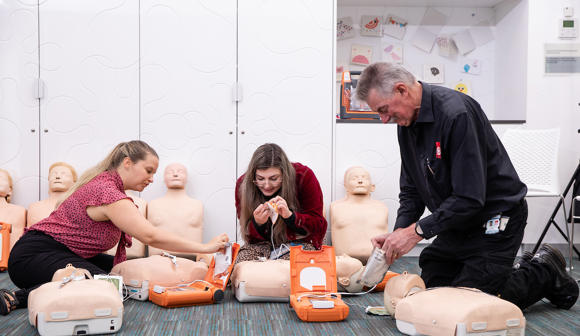
HLTAID011 PROVIDE FIRST AID
Suitable for both people in workplaces and members of the public who would like a comprehensive first aid course.
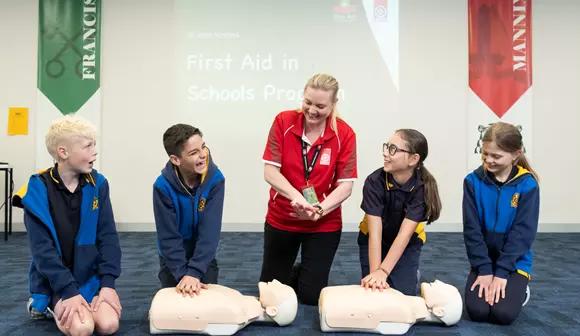
FIRST AID IN SCHOOLS PROGRAM
This free program teaches primary school students the importance of First Aid and what to do in an event of an emergency.

CARING FOR BABIES AND KIDS
Designed for parents and carers. Learn to manage basic first aid situations specific to babies and kids up to 7.
